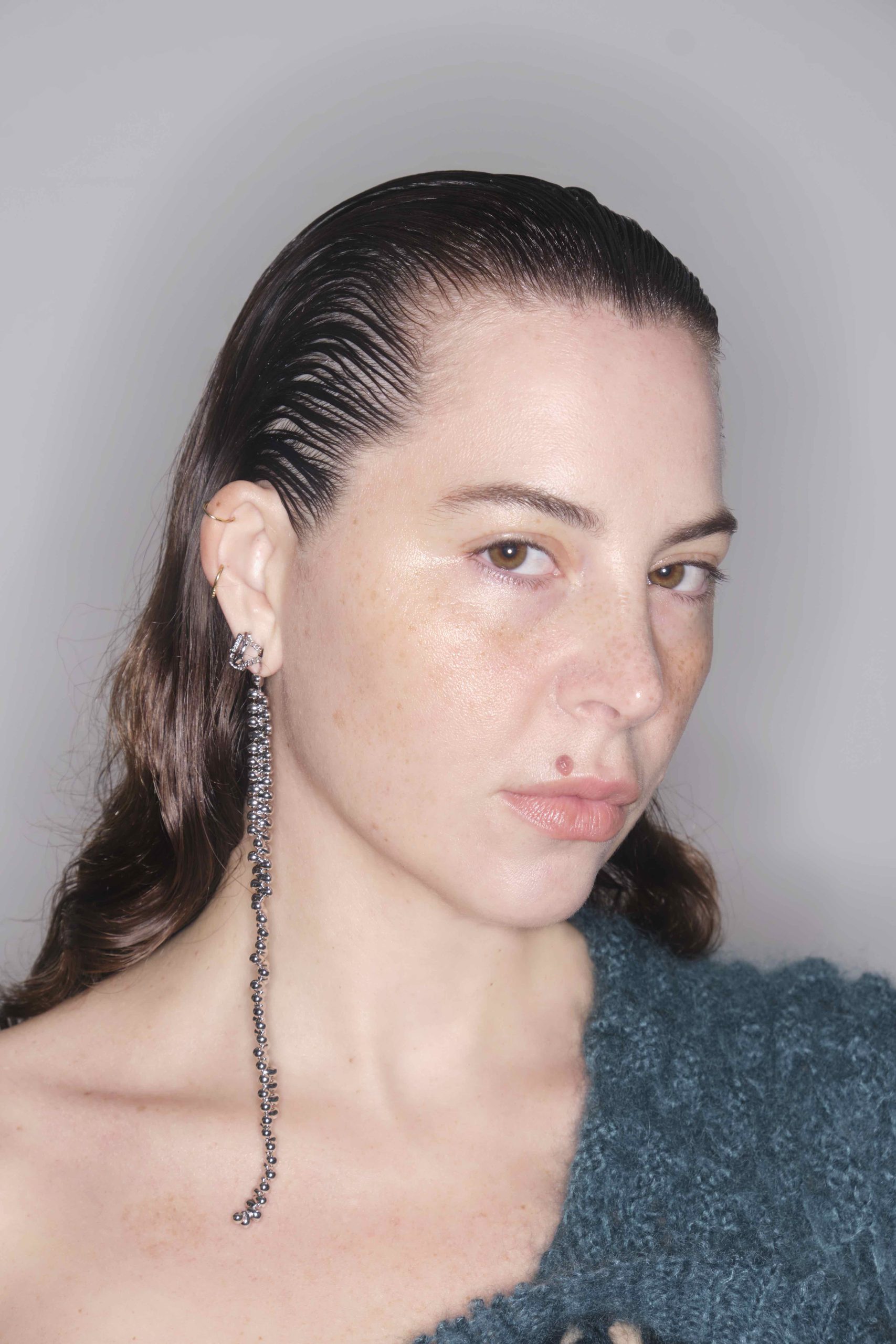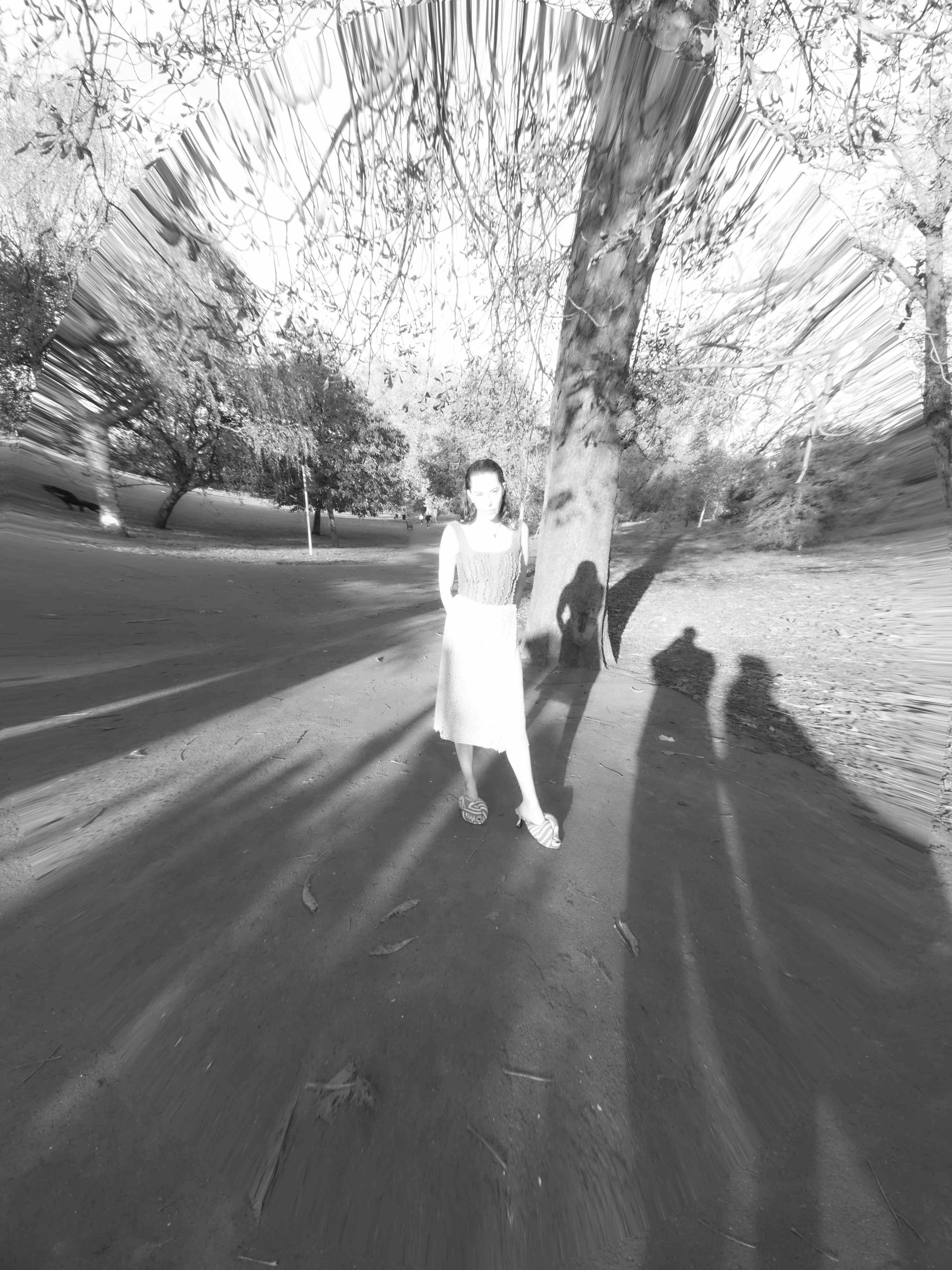Speaking to Present Space over email, Godivier says that working on music videos is a “great way to experiment and play around”. The French-Chilean director has a background in 3D animation as well as photography, which she studied at the International Center of Photography in New York. But her first proper venture into directing began with filming and editing videos on her own, before moving on to filming for fashion magazines and for friends – which is where she cut her teeth on music videos.
“After a few years, I decided to work with a friend of mine, Cecile Winckler, to shoot Deep Down,” Godivier says of her first short film from 2014 which Winckler worked on as a producer. Then in 2017, Godivier released Across My Land, her second short film. Both of Godivier’s shorts premiered at film festivals (at Toronto TIFF and Cannes, respectively), and both were recipients of awards – recognition that Godivier says feels good, considering that the life of short films “doesn’t really exist outside of festivals”. Godivier credits working on short films as part of the journey of development as a director, and a way to “figure out how things work on set, how to direct actors and how to find a style” by experimenting with camera set-ups, lighting, and so on.

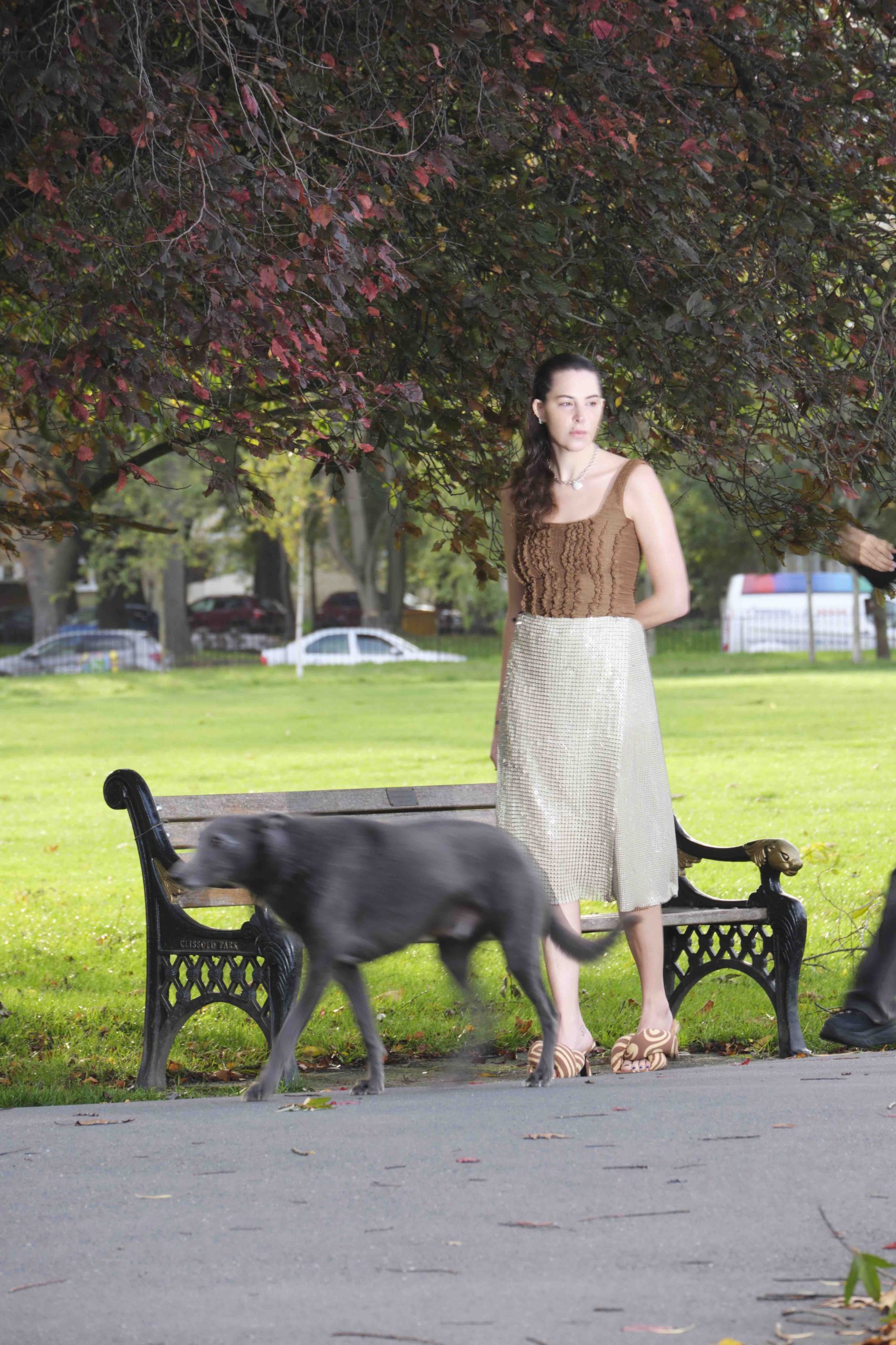
There are other mediums that Godivier works with, beyond the relatively small remit of short film circuits and music videos. Godivier has directed videos for the sought-after footwear brand, Nodaleto: in one such video from 2020, a Nodaleto-wearing giant seems to stomp around a moody orange-tinged model town. In 2021, meanwhile, Godivier directed a short video of French actor Denis Lavent for the cult art publication, Marfa Journal. Godivier is always currently working on her first feature, too. “Right now, we are in the writing stage of the process,” she says. “We’ve managed to get state funding and will hopefully start shooting next year.” But for now, the director is tight-lipped about what the film is about, other than to share that “it’s an intimate woman portrait… I don’t really want to say any more than that for now. I don’t want to curse it!” Instead, we discuss Deep Down (2014) and Across My Land (2017), Godivier’s two short films. Both set in the United States, Godivier uses these shorts to unpick the complexities of two pertinent issues that we face today.
Across My Land, which was produced by Joaquin Phoenix, Michael Tubbs and Random Beach, is an astute commentary on the minutemen, a self-proclaimed group of volunteers in Arizona, set up to patrol the border between the United States and Mexico. In a 2015 short documentary by The Guardian about the US-Mexico border and the Minutemen, a group interviewed maintain that they are neither ‘vigilantes’ nor a ‘militia’, but as Across My Land unfolds, it’s hard to believe that’s the case. Before creating the short, Godivier spent time patrolling the border with the minutemen.
But have the issues that Across My Land considers taken on greater urgency since the film’s release in 2017? “It became more relevant after the release of the film because of the election of Donald Trump, the rise of nationalism around the world and ongoing mass immigration,” Godivier says. That the film was released in 2017, the first year of Trump’s presidency on the back of a campaign pledging to construct a border wall to stop illegal immigration into the United States, is not insignificant. But as Godivier previously explained following Across My Land’s release, it was not specifically Trump’s wall that informed the film’s focus; there are many walls and borders across the world that are used to keep people, cultures, ideologies, and ways of life both in, but also out.
Despite the magnitude of the issue at the heart of Across My Land, Godivier focuses her attention on the quotidian for the main part. Told from the point of view of a minuteman and his family living in Nogales, Arizona, we’re introduced to the protagonists – antagonists? – in the throes of an evening at home. We see the mum (played by Summer Phoenix) in the kitchen, and from behind, the son assembling what looks like a school project under the supervision of his dad. As the camera pans towards the son, it becomes increasingly apparent that this dining table project is not innocent, but the piecing together of a gun. Later in Across My Land, as father (Timothy V. Murphy) and son venture out to guard the border from the ‘threat’ of illegal immigrants, we watch mother and daughter paint their nails and discuss how they’d build a snowman “if it snows”. This kind of mundane interaction between one half of the family as the film reaches its climax is particularly powerful.

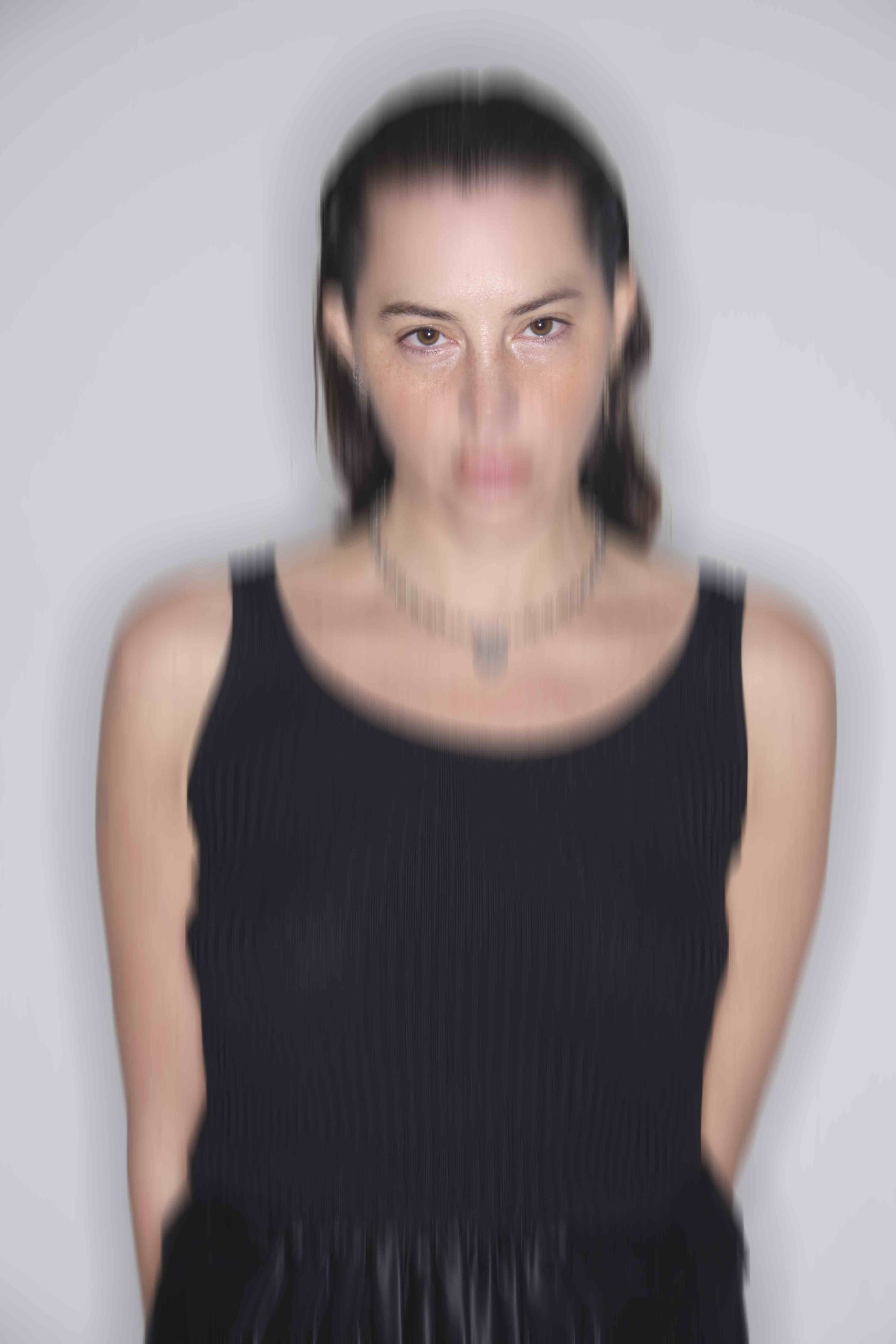
Though the director spent time in Arizona with the minutemen militia prior to filming, Across My Land is, in essence, a fictional portrayal of a fictional family. But how can film communicate, or instigate discussions about, important issues in a way that other mediums, such as documentary, can’t? “Obviously there is a directness to film that you don’t have in certain other mediums,” Godivier says. “You don’t ask too much of the viewer and that can be a strength, but I don’t think there’s anything that cannot be done in painting, writing or documentary.” Perhaps, though, film allows for a greater level of exploration in terms of emotion, feeling and interaction that something objective, like watching the news, cannot. That Across My Land is told from the perspective of the minutemen gives Godivier’s film an interesting edge before it even begins.
But, by focusing on this point of view, rather than that of the immigrants who are the target of the minutemen’s ire and violence, what does Godivier hope to achieve? How should the viewer react to their story? “It’s not for me to say how people should react,” the director says. “I guess I wanted to show the humanity on both sides of the story without judgement, if possible. And although politically I don’t stand with the minutemen in any way, I wanted to show that, however confused, there were real families and real stories being lived out in the shadow of all this division.” One of the lasting impressions that Across My Land leaves is that of the children caught up in the face of such division; whether children forcefully and intentionally separated from their parents at the border, or nurtured into a world of normalised violence (as shown in the penultimate scene of Godivier’s film). Across My Land, which premiered at Cannes in 2018, was awarded the Special Distinction in the short film category, a worthy recognition of the complex subtleties at play.
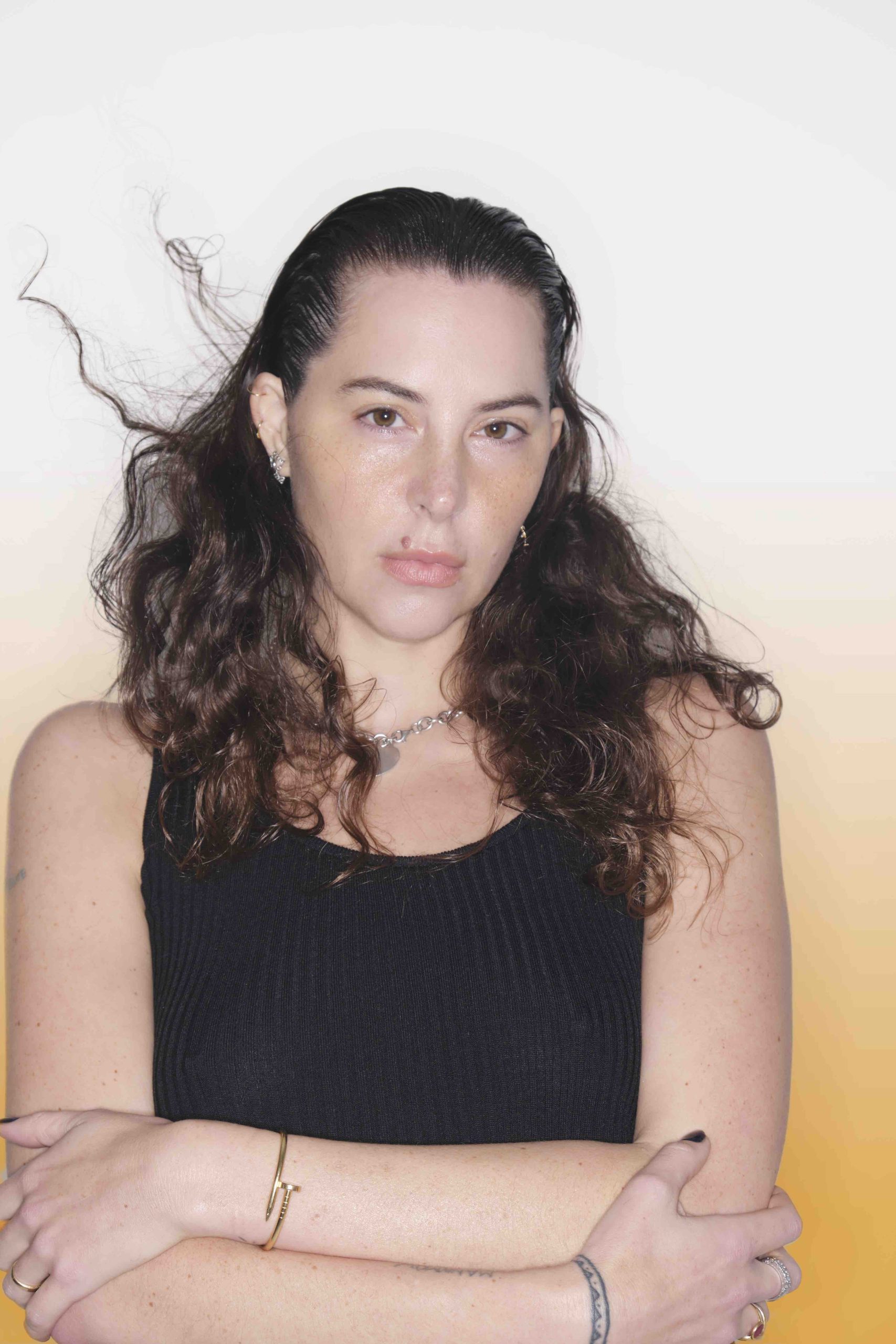
Such nuances were also on display in Godivier’s first short Deep Down (2014). In the film, Scarlett Johansson narrates the story of America (played by Breana McDow), a stripper who is led away – or led astray? – from the strip club she works in by Dick (Michael Maize), a patron who comes in one day. Dick seems to promise America the world, as Johansson’s America says, “I wouldn’t have thought a man could take interest in me in the shithole where I was dancing. All I knew is the usual crowd of perverted freaks. I told you I wanted to get out of here and live a different life than the one I was stuck in. I was dreaming of new adventures. If only I knew.” The world that Dick promises is not quite as it first seems, and instead America’s life descends to new depths, as she begins to realise who Dick really is, and grapples with what she thinks is her love for him: “I was lost again, confused – I felt stupid” America tells Dick in the voiceover. But as the narration shifts to Dick’s point of view, Godivier replays the story in which America is reconfigured in his mind as the problem: America has betrayed Dick, he laments.
Deep Down, which won Best Experimental Short at Toronto TIFF and was presented at other film festivals including Raindance, Austin and LA, introduced Godivier’s directorial style. If America and Dick’s skewed relationship is especially intense and the circumstances unfamiliar to many, Godivier allows us to relate on an emotional level with America. By showing us this complicated story from both perspectives, we see, from two sides, how Dick’s manipulative behaviour is used to continually, and consistently, break America down. So, in different ways, both Deep Down and Across My Land marries the familiar with the unfamiliar, in which everyday feelings and issues become complexly intertwined with larger, more abstract concerns. But does the director deliberately communicate a sort of monotony in both Across My Land and Deep Down? “I’m interested in the everyday goings-on of small lives” the director notes, but the subject matter, immigration and mental illness respectively, are far from mundane, she adds.
What, then, compels Godivier to take a particular issue and turn it into the subject of a film? “It’s really just things I read in the news or talk about with people that seem interesting to me. Sometimes you follow an idea, and it goes nowhere even though you spend years working on it. And sometimes you end up somewhere. Even for short films, it’s a really long process… (for me it is!)” With that in mind, how does Godivier, as a filmmaker, use short film to capture such complicated issues in such a succinct way? “Well, I guess it’s just a matter of time: you only have ten or fifteen minutes to tell an entire story and that means you have to cut it down to the bare basics of the narrative if you want to get a full picture across. It’s actually quite challenging and you have to be very decisive. But it can be a great way of telling a story. Sadly, people don’t really watch short films and I think they deserve a better place in film culture.”
